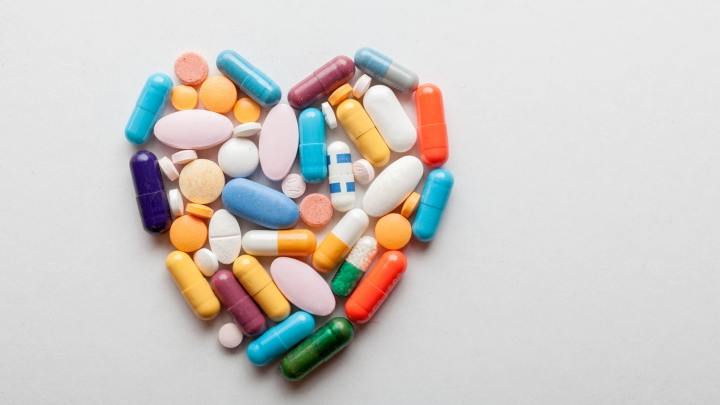Arrhythmias, or irregular heartbeats, can range from benign to life-threatening. Managing these conditions often involves medication to restore or maintain a normal heart rhythm. The choice of medication depends on various factors, including the type of arrhythmia, the patient’s overall health, and potential side effects. This article explores the safest medications used to treat arrhythmias, highlighting their efficacy and safety profiles.
Types of Arrhythmias and Treatment Goals
Arrhythmias are broadly categorized into tachycardias (fast heart rhythms) and bradycardias (slow heart rhythms).
Common types include:
Atrial fibrillation (AFib): Rapid and irregular beating of the atria.
Ventricular tachycardia (VT): Fast heart rhythm originating from the ventricles.
Supraventricular tachycardia (SVT): Rapid heart rate originating above the ventricles.
Bradycardia: Slow heart rate, often requiring pacemaker intervention.
The primary goals of treatment are to control heart rate, restore normal rhythm, and prevent complications such as stroke or heart failure.
SEE ALSO: What Are Four Signs That Your Heart Is Slowly Failing
Criteria for Safest Arrhythmia Medication
The safest medication for arrhythmia should ideally meet the following criteria:
Efficacy: Effectively controls or prevents arrhythmias.
Minimal side effects: Low incidence of adverse effects.
Compatibility: Safe for use in patients with comorbid conditions.
Long-term safety: Proven safety for prolonged use.
Common Arrhythmia Medications
1. Beta-Blockers
Overview:
Beta-blockers, such as metoprolol, atenolol, and carvedilol, are commonly used to manage arrhythmias by blocking the effects of adrenaline on the heart, thus slowing the heart rate and reducing the force of contraction.
Efficacy and Safety:
Beta-blockers are particularly effective for managing atrial fibrillation and preventing arrhythmias post-myocardial infarction. They have a well-documented safety profile, especially in patients with coexisting conditions like hypertension and heart failure.
Side Effects:
Common side effects include fatigue, dizziness, and cold extremities.
They are generally well-tolerated, making them a safe choice for long-term use.
2. Calcium Channel Blockers
Overview:
Calcium channel blockers, such as diltiazem and verapamil, work by inhibiting calcium influx into heart cells, thereby slowing the heart rate and reducing the heart’s workload.
Efficacy and Safety:
These medications are effective in controlling ventricular rate in atrial fibrillation and other supraventricular tachycardias.
They are particularly useful for patients who cannot tolerate beta-blockers.
Side Effects:
Side effects include constipation, dizziness, and peripheral edema.
They are considered safe for long-term use in most patients.
3. Antiarrhythmics
Overview:
Antiarrhythmic drugs like amiodarone, flecainide, and sotalol are specifically designed to restore and maintain normal heart rhythm.
Efficacy and Safety:
Amiodarone is one of the most effective antiarrhythmics for both atrial and ventricular arrhythmias. Flecainide and sotalol are effective for maintaining sinus rhythm in atrial fibrillation.
Side Effects:
Amiodarone: Long-term use can lead to thyroid dysfunction, pulmonary fibrosis, and liver toxicity. Despite these risks, it is often considered the safest antiarrhythmic due to its efficacy and the ability to manage severe arrhythmias.
Flecainide: Can cause proarrhythmic effects, particularly in patients with structural heart disease.
Sotalol: Risk of torsades de pointes, a type of life-threatening ventricular tachycardia.
4. Digoxin
Overview:
Digoxin is a cardiac glycoside that increases the force of heart contractions and controls heart rate.
Efficacy and Safety:
Effective for rate control in atrial fibrillation and heart failure, especially in sedentary patients.
Side Effects:
Narrow therapeutic window with potential for toxicity, leading to symptoms like nausea, dizziness, and arrhythmias.
Requires regular monitoring of blood levels.
What Is The Safest Arrhythmia Medication?
1. Dronedarone
Overview:
Dronedarone is a derivative of amiodarone designed to minimize the side effects associated with its parent compound.
Efficacy and Safety:
Effective in reducing hospitalization for atrial fibrillation. It has a better safety profile compared to amiodarone, with fewer thyroid and pulmonary side effects.
Side Effects:
Still carries risks of liver toxicity and contraindicated in severe heart failure.
2. Ivabradine
Overview:
Ivabradine selectively inhibits the If current in the sinoatrial node, reducing heart rate without affecting myocardial contractility.
Efficacy and Safety:
Used for heart rate control in patients with heart failure and sinus tachycardia. Well-tolerated with minimal side effects.
Side Effects:
Bradycardia and visual disturbances (phosphenes).
Tailoring Treatment to Patient Needs
Selecting the safest arrhythmia medication involves a personalized approach, considering the patient’s specific arrhythmia type, comorbid conditions, and risk factors for adverse effects. A cardiologist often employs a combination of medications and other interventions, such as catheter ablation or device implantation, to achieve optimal outcomes.
Conclusion
What is the Safest Arrhythmia Medication?
The safest arrhythmia medication varies depending on individual patient factors. Beta-blockers and calcium channel blockers are generally considered safe and effective for many patients. Amiodarone, despite its potential side effects, remains a critical option for severe arrhythmias due to its high efficacy. Newer agents like dronedarone and ivabradine offer promising safety profiles and are valuable additions to the arrhythmia treatment arsenal. Ultimately, the choice of medication should be tailored to each patient’s unique clinical scenario, ensuring both safety and efficacy in managing arrhythmias.

